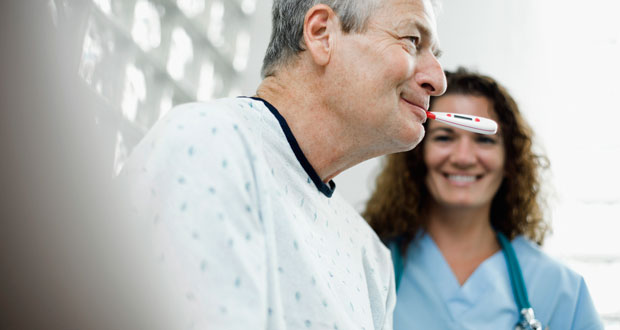Keeping close tabs on a stroke patient's body temperature and blood sugar levels may improve recovery, a study by Australian Catholic University and the University of Tennessee has found. This research was presented at the Nursing Symposium of the American Stroke Association's International Stroke Conference 2016.
A study of 235 patients – 87 per cent with clot-caused strokes and 13 per cent with brain bleeds – found that during the first five days of hospitalisation:
- 39 per cent of patients never had their temperature checked in the emergency department.
- During hospitalisation, 10 per cent of patients ran a fever for more than four hours and 8 per cent for more than eight hours, according to US standards (temperature higher than 38 degrees).
- According to European/Australian standards (temperature higher than 37.5 degrees), 27 per cent of patients ran a fever higher than more than four hours.
- One-third of patients had high blood sugar (more than 180 mg/dL) for more than four hours during their hospitalisation.
- Patients with normal blood sugar and those who had their temperatures controlled to less than 37.5 degrees were significantly more likely to be discharged with little disability.
"The importance of moving fast to treat stroke patients with reperfusion therapies (IV alteplase and thrombectomy) may have overshadowed the importance of also paying attention to the basics," the researchers said.
"Given the time-sensitive ability of the brain to recover after stroke, ignoring temperature and glucose levels for even short time may have detrimental effects."
Do you have an idea for a story?Email [email protected]
 Aged Care Insite Australia's number one aged care news source
Aged Care Insite Australia's number one aged care news source

